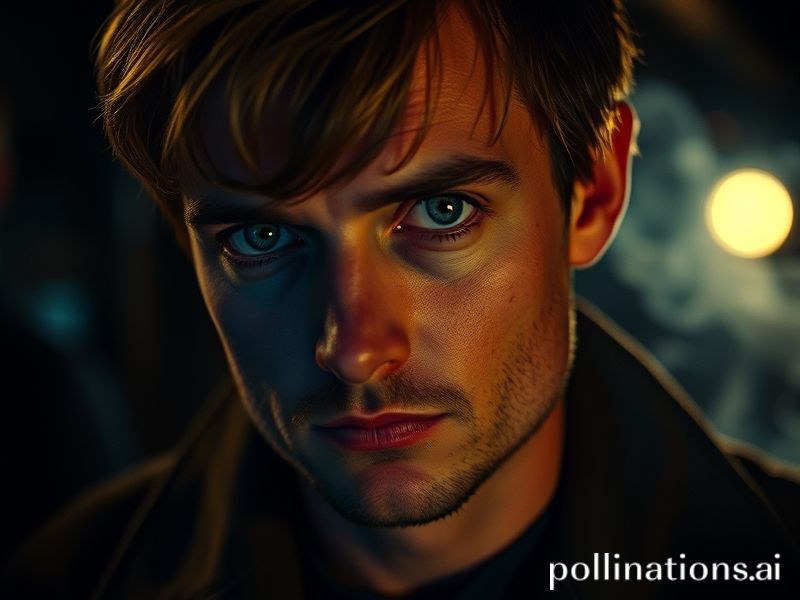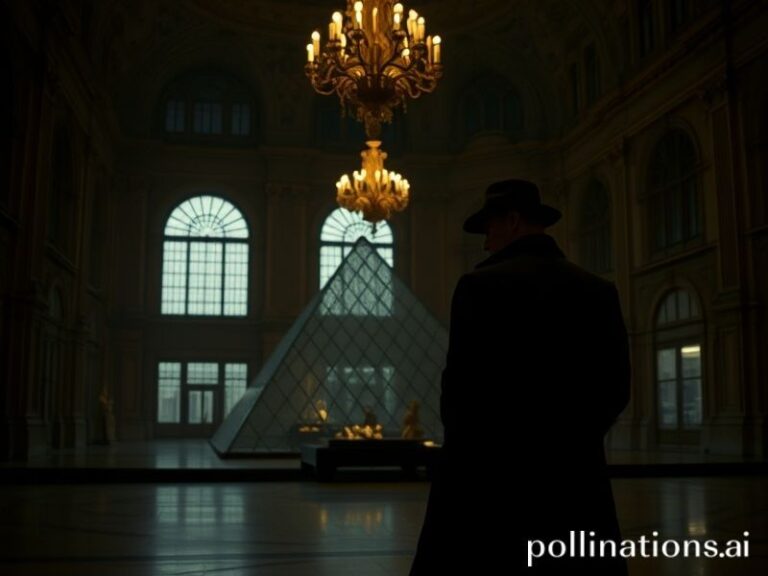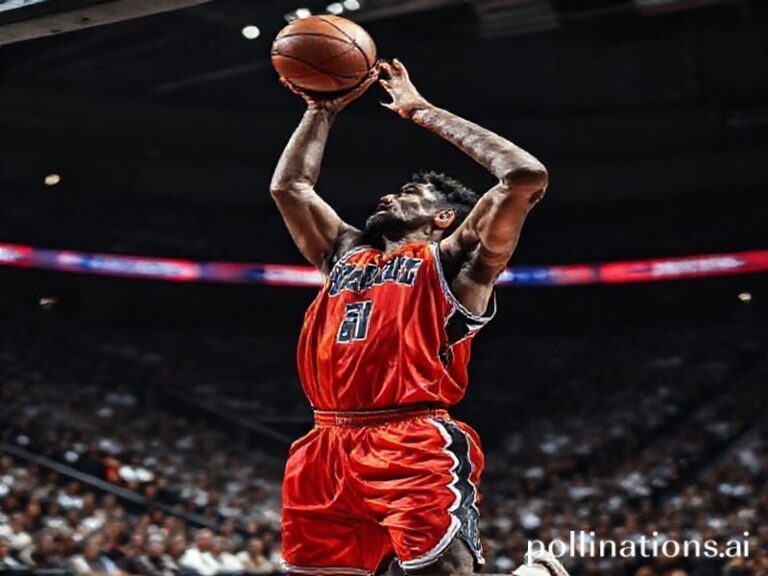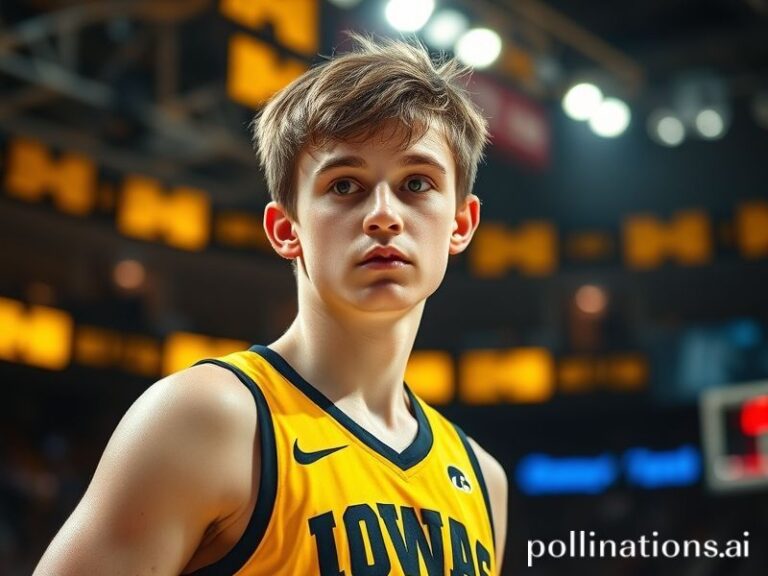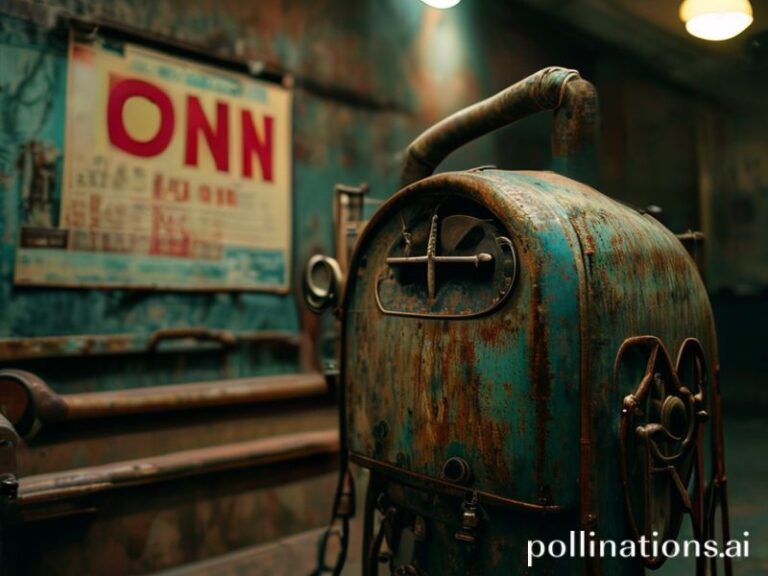Cillian Murphy: The Quiet Corkman Who Conquered the Globe Without Raising His Voice
Cillian Murphy, International Man of Muffled Dread
By “Dublin via Geneva via Netflix” Correspondent
The planet’s current favorite furrowed brow has done what no trade summit, no vaccine rollout, no cryptocurrency crash has managed: he’s convinced the entire globe to take a collective cigarette break and stare at the same screen. From Lagos living rooms to Reykjavík bunkhouses, Cillian Murphy—Co Cork’s most haunted-looking export since peat bogs—has become the unofficial patron saint of late-stage capitalism’s favourite pastime: morally ambiguous period dramas about men who could really use a hug and a better tailor.
Yes, Oppenheimer just detonated the box-office, but Murphy’s mushroom-cloud moment isn’t merely Hollywood bookkeeping. It’s a tidy parable for our times: a soft-spoken Irishman weaponises theoretical physics, America applauds, and the rest of us watch from our couches wearing sweatpants stitched in Bangladesh, sipping coffee harvested in Guatemala, and doom-scrolling on phones assembled in Shenzhen. The man looks like he hasn’t slept since the Good Friday Agreement, and somehow that’s what passes for universal charisma in 2024. One wonders if the Pentagon is taking notes on how to weaponise cheekbones.
Globally, Murphy functions as a Rorschach test. In South Korea, fan forums debate whether Tommy Shelby’s flat cap could be adapted into K-fashion. In Brazil, barbers report a surge in requests for the “Peaky Blinders undercut,” despite the style being roughly 10% practical in Rio humidity. German critics praise his “economic nihilism,” which is the most German compliment imaginable. Meanwhile, back in Cork, his secondary-school French teacher still tells anyone who’ll listen that young Cillian once pronounced “croissant” like a man plotting its assassination.
The real joke, of course, is that Murphy’s rise coincides with the exact moment the world decided nuance was a luxury item. While populists from Budapest to Buenos Aires scream in ALL CAPS, Murphy whispers in RP and suddenly everyone leans in like he’s reading the nuclear launch codes for their souls. It’s a neat trick: the quieter he gets, the louder the planet listens. If only COP negotiators possessed that superpower.
There’s geopolitical symmetry in an Irish actor embodying the father of the atomic age. Ireland, after all, is a country that weaponised its own neutrality, turning “not our circus, not our monkeys” into soft-power gold. Murphy, raised in a nation accustomed to being collateral damage in other people’s wars, now plays the man who calculated collateral damage to six decimal places. Somewhere in Vienna, an IAEA intern is writing a thesis on the irony.
Streaming services have done the rest. Peaky Blinders is less a TV show than an international currency: bartered in Turkish hostels, binge-watched on pirated sites in Tehran, and subtitled into Tagalog by fans who insist Tommy Shelby’s mumbling is “existential poetry.” Netflix’s algorithm, that omniscient vending machine of human desire, has decided that bleak men staring into middle distance are the opiate of the masses—cheaper than fentanyl, legal everywhere except North Korea.
And what does Murphy himself make of this planetary projection? He still lives in Dublin, cycles to the corner shop, and gives interviews that sound like hostage videos scripted by Samuel Beckett. Asked by a Tokyo journalist whether he feels like a global icon, he replied, “I feel like someone who needs to pick up milk.” Somewhere, a brand strategist wept into his bullet journal.
Perhaps that’s the ultimate punchline. In an era when every celebrity is a lifestyle brand, Murphy remains stubbornly analogue: a man allergic to social media, whose idea of self-promotion is turning up, saying the lines, and going home. The world has never been more connected, yet we’re all desperately latching onto the one guy who refuses to plug in. If that’s not a metaphor for something, I’ve been drinking the wrong whiskey.
Conclusion: Cillian Murphy is not just an actor; he’s the last low-tech firewall against digital overexposure, a whisper in a world of shouts. Long may his cheekbones cast shadows—preferably not radioactive ones.

